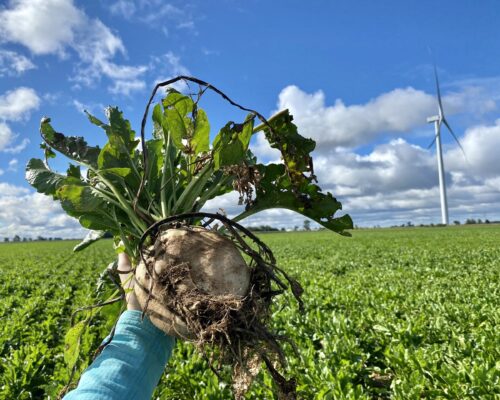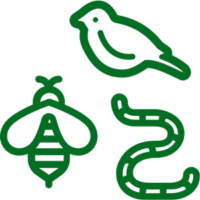Our Beliefs
Responsible stewardship is one of our top priorities, which means we:
Safety
Safety is one of our top priorities, and we work daily to improve our facilities and protect our people. Several of our facilities are certified by OSHA and maintain SHARP status.
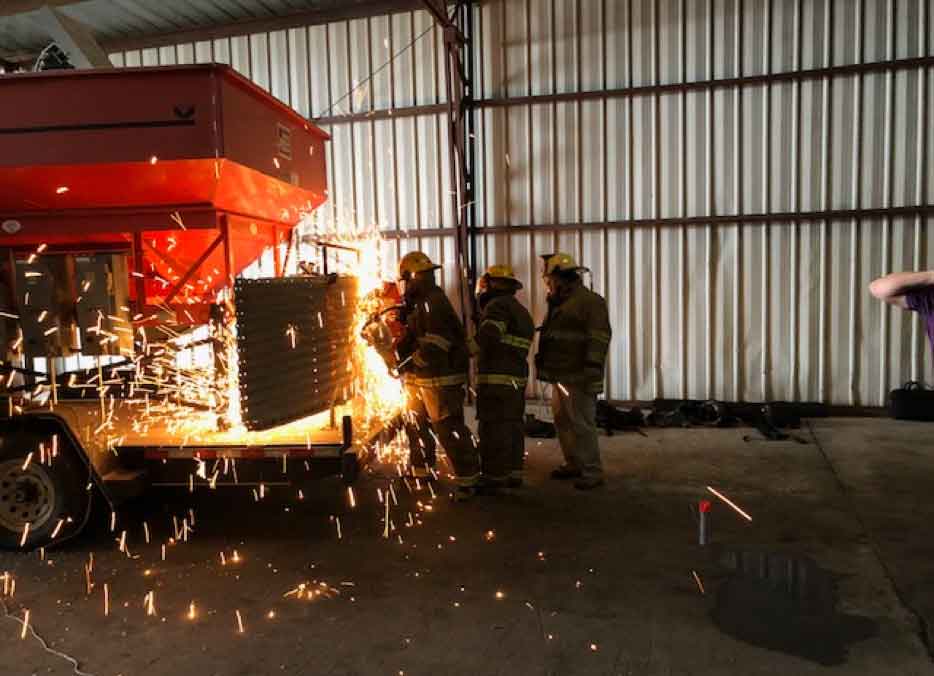
Grain bin entrapment safety rescue training.
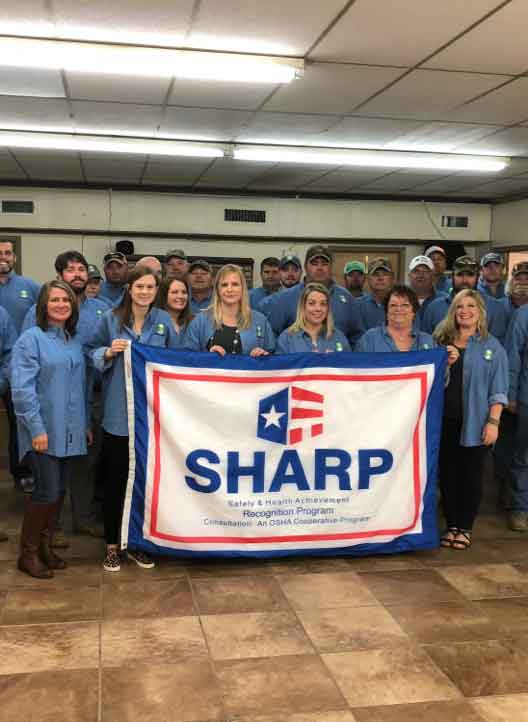

No-till corn on one of our farms in Indiana.
Sustainability
Sustainable farming is what we do today to protect the future of our land, our families, and our communities. We are committed to sustainable stewardship of our land, which is why all our farms are enrolled in the Leading Harvest sustainability standard. Leading Harvest requires farmland owners to work to continuously improve soil health, biodiversity, and water, air and crop quality on their farms as well as contribute positively to local communities, comply with regulations, and provide a safe and respectful working environment for employees.

No-till corn on one of our farms in Indiana.
Biodiversity
Protecting and conserving biodiversity is core to sustainable agriculture and core to beliefs at Oak River Farms.
We are currently implementing three new biodiversity projects in the South, West, and Midwest Regions, all of which feature long-term visions as well as immediate action items.
These include adding additional pollinator habitat in Nebraska, planting wildlife friendly trees on dry pivot corners in Florida, and improving sagebrush habitat in Washington, to name a few. Going forward Oak River Farms plans to continue to evaluate and implement new initiatives that will improve the overall sustainability of its farmland portfolio.
For information on some of our ongoing projects, see the below:
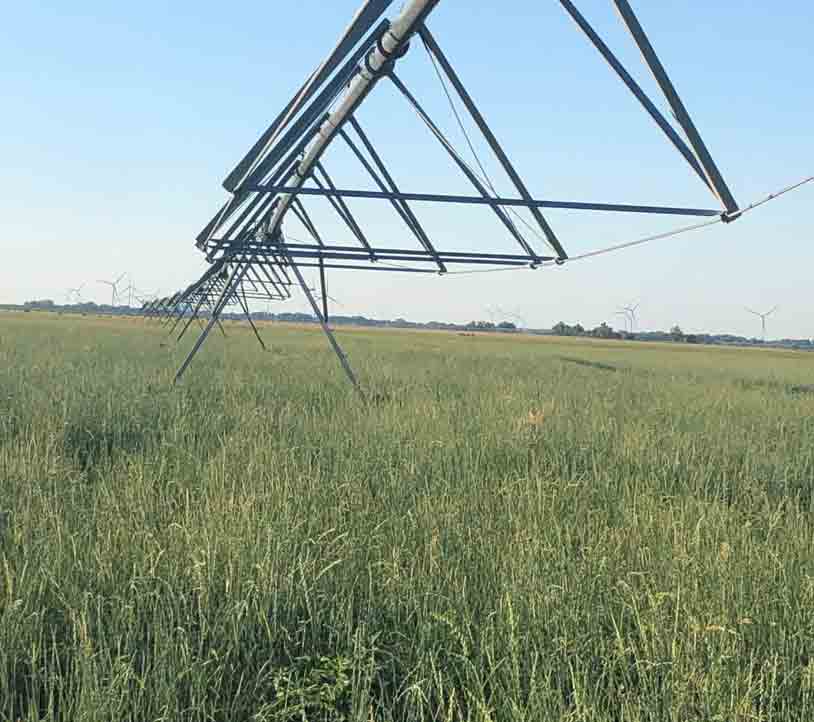
Nebraska Pollinator Habitat Project
North America has been witnessing a decline in a wide variety of pollinator species over several decades. Pollinators are crucial for food production and allow native plant populations to remain viable. Pollinator habitat loss, specifically the loss of native forbs/flowers and other desirable pollen-producing plants in the landscape, is one of the primary reasons for this decline. To combat this, we took 160 acres of former row crop ground in Nebraska and inter-seeded a cattle friendly native forb seed mix to create high quality biodiverse habitat for pollinators. This new habitat will benefit numerous pollinators including the Monarch and other butterflies, bees, moths, and a variety of invertebrates.
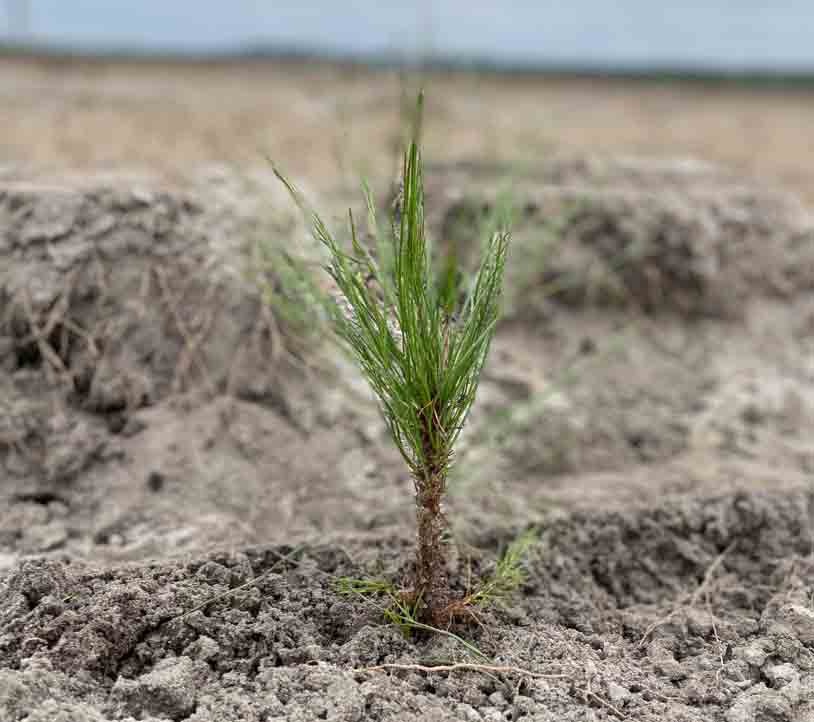
Florida Wildlife Friendly Tree Planting
In lieu of the typical “tightly spaced monocultural” pine planting, which is not wildlife-friendly, ORF staff conducted a 115 acre wildlife-friendly tree planting project. This involved being creative and considering the needs of wildlife by establishing less dense, quick-growing pine plantings on 12 foot rows with 6.5 feet between trees. This modified practice creates improved windbreaks (for soil conservation) and more open area for wildlife beneath the canopy, especially benefitting the historic bobwhite quail (species of local concern) and gopher tortoise (state listed species). It is possible that indigo snakes (endangered) may also benefit from work done on the property. Per the recommendation of the Florida Fish and Wildlife Conservation Commission, in 2021, specific mowing practices and prescribed burns will be applied to control noxious weeds, increase biodiversity on the forest floor, and maximize the success of the tree plantings.
Investment Philosophy
Our philosophy is simple.
We invest in farmland across the country, focusing on improving the quality and sustainability of the land, which is leased to local farmers.
We believe sustainable agriculture practices are not only core for the longevity of our investment but also protect the land for generations in our communities.
